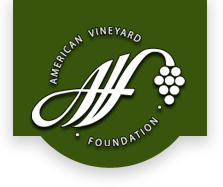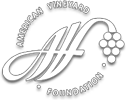AVF Research Review Team Tackles 96 Research Proposals for Funding Decisions
Napa, CA, February 22, 2008 – The American Vineyard Foundation (AVF) has assembled a team of 99 respected wine and grape industry members with specific technical expertise from around the country to review research proposals for funding in 2008. “Of the 96 proposals that were submitted, we typically have the funds to support about 20 to 30 percent of them,” said AVF Chairman Hal Huffsmith. “So the review process is very important to ensure that we fund those proposals that address industry research priorities and are the most likely to produce applicable results.” While most of the members of the review committee call California home, some of the reviewers come from several other states and Canada. Dr. Nancy Irelan is the review process manager for the AVF and coordinates closely the efforts of the AVF with the Viticulture Consortium West (VCW) and the California Competitive Grant Program for Research in Viticulture (CCGPVE) funding programs coordinated by Dr. Deborah Golino. The review process uses ranking guidelines based on the 100-point scale which AVF review committees have used for several years. Proposals are initially evaluated based on a determination of how well the proposed research addresses an industry need. Reviewers then assign points to the “Justification of Objectives” section based on how well the principal investigator justifies the significance and validity of the proposed work in directly addressing an industry priority. Researchers are encouraged to strengthen their justification sections by including relevant analyses, data and results from previous studies when possible. The “Validity of Procedures and Experiments to Meet Stated Objectives” section requires a critical assessment of the proposed experimental procedures along with evaluating the likelihood that the methodologies and techniques described will fulfill the stated objectives. Lastly, the “Appropriateness of Budget” section is evaluated based on the scope and detail of the proposed work and the anticipated fiscal requirements needed to accomplish the stated objectives. “By the time the review process is completed and announcements are made in May, each proposal will have been carefully reviewed by approximately five technical reviewers,” said Huffsmith. “The evaluations and comments, crafted and discussed by the review committees, are created to help researchers in shaping future project proposals.” The review process is aided through the use of the Unified Grant Web site hosted by UC Davis. Reviewers can log on to the site and review projects as time permits. “We started using the Web based review method a few years ago and it has greatly streamlined the process as well as aided in coordinating our efforts with the VCW, CCGPVE, Table Grape Commission, Rootstock Commission and Research Board, Raisin Marketing Board and the Oregon Wine Board which also use the same site,” said Huffsmith. Established in 1978 to raise funds for research in viticulture and enology, the AVF is a wine-industry sponsored non-profit organization funded by growers and vintners. Since its founding, the AVF has funded over $18 million in wine and grape-related research. For a complete listing of the funded research projects or more information regarding the AVF, check out their Web site at www.avf.org or by e-mail at scott@avf.org.

